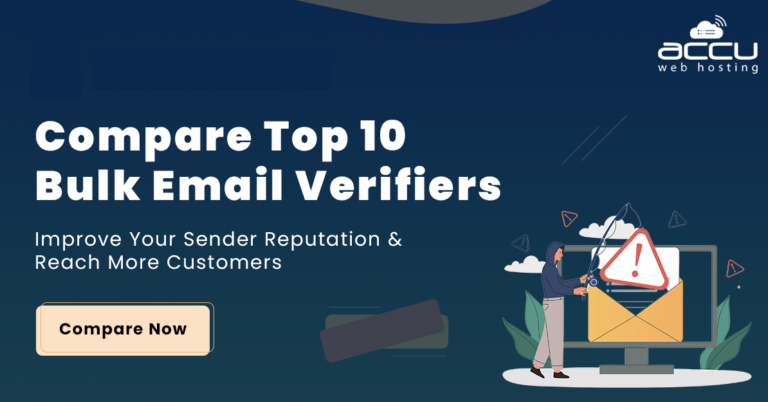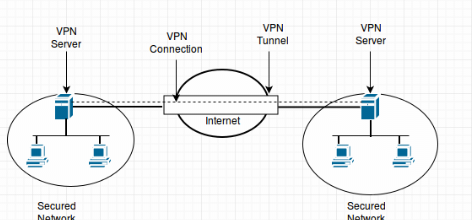WordPress Page Builders – Best Page Builders for WordPress Sites
A few years ago, building a WordPress website felt like assembling a puzzle with missing pieces. You’d spend hours wrestling with code, adjusting layouts, and still end up with a design that didn’t quite match your vision. But then came page builders — tools that completely changed the way we design websites.
Suddenly, anyone could build a stunning WordPress website with just a few clicks. Drag, drop, and watch your ideas come to life, no coding required. What started as a simple visual editor has now evolved into a creative powerhouse.
In 2025, WordPress page builders are smarter, faster, and more flexible than ever. From AI-assisted design suggestions to responsive editing and advanced integrations, they’ve turned website building into an intuitive art form.
Whether you’re a beginner launching your first blog or a designer managing multiple client sites, the right page builder can save time, spark creativity, and help you craft something extraordinary. Let’s explore the best, most popular, and latest WordPress page builders that are redefining web design today.
What is a WordPress Page Builder?
A WordPress page builder is a visual design tool that allows you to create and customize web pages without writing a single line of code. Instead of working inside the traditional WordPress editor, you can drag elements like text boxes, images, buttons, or forms directly onto your page and style them instantly.
Whether you want a clean portfolio, a stylish blog, or a high-converting landing page, page builders make it possible — even for beginners. They also give designers and developers more flexibility to create complex layouts faster than traditional coding ever could.
Over time, these builders have evolved from simple layout editors into full-fledged design ecosystems complete with responsive controls, animations, custom CSS options, and integrations for eCommerce, marketing, and analytics.
Key Features of WordPress Page Builders
WordPress page builders are packed with various features that simplify website creation. Here are some important ones:
-
Pre-Designed Templates:
These are ready-to-use designs that you can apply to your website. They come in various styles and can be customized to fit your needs.
-
Drag-and-Drop Functionality:
This tool allows you to effortlessly move elements across your page. You have the freedom to add, delete, or rearrange sections as needed.
-
Custom CSS:
For users seeking greater control over their website’s design, certain builders enable the addition of personalized CSS code.
-
WYSIWYG Editing:
WYSIWYG (What You See Is What You Get) editing allows you to see the live changes you make to your website as you build it.
-
Responsive Design:
In today’s mobile-first world, websites must look good on all devices.
Page builders help achieve this by allowing you to preview and edit your site’s appearance across different screen sizes, ensuring responsive design.
Advantages and Limitations of Page Builders:
Advantages of Page Builders:
-
User-friendly:
No coding required, just drag and drop.
-
Fast development:
Templates enable rapid website creation.
-
Cost-effective:
More affordable than hiring professional developers.
-
Flexible:
Offers numerous design options.
-
Easy maintenance:
Simple updates and changes.
Limitations of Page Builders:
-
Performance:
May experience slower loading times due to additional code.
-
Limited Customization:
Less flexibility compared to coding from scratch.
-
Dependency:
Removing the tool may disrupt the site’s functionality.
-
Code Quality:
Automatically generated code may lack cleanliness or efficiency.
-
Learning Curve:
Requires time to master all features.
Top 6 Best Page Builders for WordPress Sites
1. Elementor
- Active installations: 5+ million
- Ratings: 4.5
- Price: Pro-version starts at $59 per year (A free version is also available).
Elementor is one of the most popular drag-and-drop page builders that offers a wide range of features and design options.
It is free to use, or if you wish, you can opt for its pro version, which costs $59 per year.
Elementor allows you to customize your website visually, eliminating the need for coding. Users can personalize text, images, video, and blocks easily.
It offers various features like templates, responsive design, CSS customization, and integration with plugins like WooCommerce and WPForms.
Key Features of Elementor:
- Popup Builder
- Complete Site Editing
- Over 300 Template Kits
2. Beaver Builder
- Active installations: 200,000+
- Ratings: 5 stars
- Price: The price for pro-version starts at $99 per year (A free version is also available)
Next on our list of top WordPress website builders is Beaver Builder. Known for its user-friendliness and lightweight design, it offers direct integration with Gravity Forms and white-labeling options.
Developers can also customize it for advanced modifications.
Key Features of Beaver Builder:
- White-labeling available in
- Optimized for quick page loading
- Unlimited site usage
- Over 30 design modules
3. SeedProd
SeedProd is a premium drag-and-drop WordPress page and theme builder that lets you create complete custom websites without coding.
It offers 300+ ready-made templates for landing pages, sales pages, 404 pages, eCommerce pages, and more. You can also use its AI website builder to generate full websites with text, images, and translations in over 50 languages.
It integrates with WooCommerce and popular email tools like Mailchimp and ConvertKit, making it perfect for businesses and agencies.
Pricing: Starts at $39.50/year for one site (free version available).
✅ Pros:
-
Full theme & page builder
-
300+ templates
-
AI-powered site generation
-
WooCommerce integration
-
Easy drag-and-drop editing
❌ Cons:
-
Theme builder only in Plus plan or higher
-
Limited features in free version
- Divi
- Active installations: 100,000+
- Rating: 5 star
- Price: Price starts at $89 per year with lifetime access for $249.
Divi stands out as the ultimate premium WordPress theme and page builder, offering unparalleled customization capabilities.
With its intuitive drag-and-drop Visual Builder, you can carefully design every aspect of your website in real-time. Remarkably, Divi AI enhances content creation by generating text and images based on prompts
Furthermore, Divi’s visual WYSIWYG editor offers fully customizable pre-designed layouts, enabling users to exert full control over their website’s look and feel.
Key Features of Divi:
- Automated image and text creation using AI
- Complete website customization with the Theme Builder
- Intuitive drag-and-drop Visual Builder
- Over 2000 professionally crafted layouts
5. SiteOrigin
- Active installations: 900,000+
- Ratings: 5 Star
- Price: Free and premium add-ons price start at $29 per year.
SiteOrigin is quickly gaining popularity as a WordPress builder.
This plugin is one of the most effective content-creation interfaces that gives complete freedom to select any WordPress theme; it is compatible with almost every WordPress theme.
SiteOrigin works with standard WordPress widgets, making it simple and effective in creating responsive column-based content.
You can add custom CSS and CSS classes to SiteOrigin for additional customization; it provides an alternative to building a website without using code.
Additionally, SiteOrigin creates content that is compatible with mobile devices.
Key Features of SiteOrigin:
- Builder for Custom Post Types
- Widget for Post Loops
- Template Builder for WooCommerce
- Real-time Editing
- Styles for Rows and Widgets
6. Themify
- Active installations: 9,000+
- Ratings: 4 stars
- Price: The price for pro-version starts from $59 (A free version is also available).
Themify is an ideal choice for developers who want to expedite the creation of websites required to have ready-to-use templates for their customers.
In addition, you can almost entirely customize your web pages using the Themify builder.
For anyone requiring a flexible page builder and a plugin that works with almost any theme, Themify is one of the most preferred options.
In addition, you can easily add and rearrange rows, columns, and modules on your website.
which is one of the most valuable features when designing a product page as it groups content with a neat and clean appearance of a cluster.
Key Features of Themify:
- Extensive Library of Modules and Blocks
- Frontend Editing
- Responsive Design
Conclusion
WordPress page builders make the task of website designing easy for even those individuals who are not familiar with coding or technical skills. Though we have listed only a handful of options, many more WordPress page builders have unique features and capabilities. You can research and review different page builders to discover the best option that meets your needs and decide which page builder is the best for your site.
However, based on our research, we believe overall Elementor is the best page builder because it is not only user-friendly, even for beginners, but it is also compatible with all the WordPress themes and has a tonne of functionality.
With ample scope to customize every aspect of your website and build a responsive design, Elementor is a perfect choice.
We are sure this blog has helped you to narrow down your choices and make an informed decision!
However, besides a good page builder, you always need powerful, highly optimized WordPress hosting for a stunning WordPress website!
So, no matter which page builder you select, with proficient WordPress hosting, you can be confident that your website will look professional and perform optimally.
About the Author: Jason-Pat
Founder & CTO at AccuWebHosting.com. He shares his web hosting insights at AccuWebHosting blog. He mostly writes on the latest web hosting trends, WordPress, storage technologies, Windows and Linux hosting platforms.









